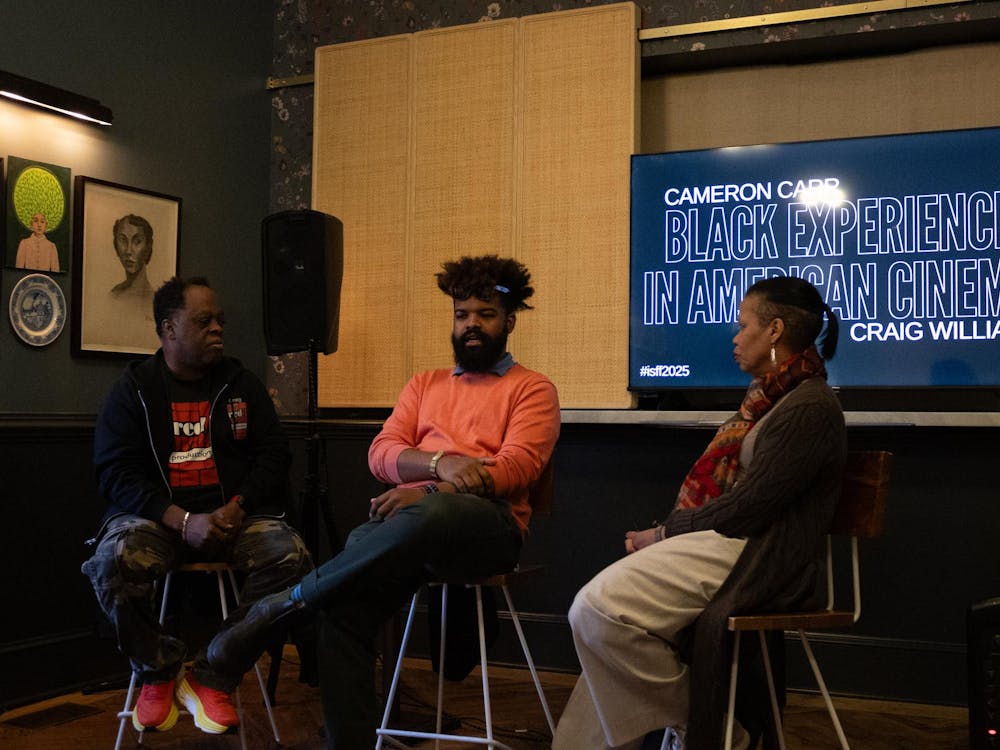I’m no stranger to scary stories. At eight years old, my dad introduced me to the twisted mind of Edgar Allan Poe, and ever since then I’ve been utterly intrigued by all things dark and mysterious. Needless to say, I’m familiar with the famous rhyme about the infamous 19th century female murderess:
_Lizzie Borden took an ax,
She gave her mother forty whacks.
When she saw what she had done,
She gave her father forty-one._
A few years ago, a family friend gave my mom a vase that, strangely enough, was inherited from Lizzie Borden herself. I’ve always taken pride in the fact that my family owns the priceless heirloom, but, after seeing Lifetime’s rendition of “Lizzie Borden Took an Ax,” I’m not sure if it’s something I should be proud of.
Christina Ricci stars as the infamous murderess, Clea DuVall as her sister Emma and Stephen McHattie as their unfortunate father. The plot is fairly simple — as simple as a grisly ax murder can be, I suppose. Lizzie is a dishonest, hard-headed and rather unpleasant daughter.
Her father unsurprisingly remarks more than once that she won’t easily be married off. After disobeying her parents on numerous occasions, by lying, stealing, and sneaking off, Lizzie finally snaps in her greatest display of deadly rebellion. On a hot morning in August, the youngest Borden daughter slays her stepmother and then, a little more than an hour later, her napping father.
I’m not normally squeamish, but the film continually returned to these scenes and I had a hard time getting used to the sight of Andrew Borden’s mutilated face. I found these displays of gore a bit excessive. After a while, I was no longer terrified, just sickened.
Surprisingly, the most terrifying moments were those that lacked the exposure of bodily fluids. Ricci spends most of the first 20 minutes traipsing in and out of the Borden’s home like a ghost. Hollow-eyed, meticulous and a pathological liar, she is detestable from the start.
Though I was shocked by the absolute horror of the film, I found myself chuckling at the ridiculous portrayal of Borden’s crime. Transitions between scenes were filled with contemporary rock music: a small detail with major consequences. I half expected to see a car — or at least a carriage — explode behind an unphased Lizzie as she walked down the streets of Fall River, Mass. in slow motion.
At one point in the film Lizzie appears to flirt with her father. This, coupled with the fact that she murdered him while naked, raised many questions in my mind as to her motives for the murder. But I suppose it’s pointless to search for reason behind these crimes; the woman was a psychopath.
Ricci was phenomenal as the manipulative and disturbing antagonist, standing in stark contrast of DuVall’s subdued character. The film stays true to the historical record of events: from the smallest details of Lizzie’s numerous alibis to the accurate times, places and circumstances surrounding the murders. The film captures the ingenious complexity and suspicious nature of the real-life events.
I’ve never believed in ghosts, but I think I may ask my mom to dispose of the vase in our living room before I return for Spring Break.






